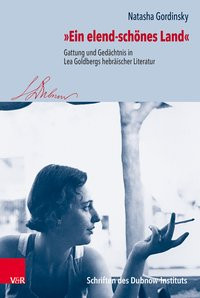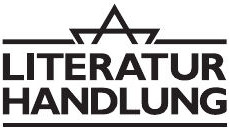"Ein elend-schönes Land"
Gattung und Gedächtnis in Lea Goldbergs hebräischer Literatur
- Autor: Gordinsky, Natasha
- Erscheinungsjahr: 2018
- Seiten: 250
- Bindung: gb
Herstellerinformationen
Zu den Herstellungsinformationen gehören die Adresse und zugehörige Informationen des Herstellers des Produkts.
Vandenhoeck & Ruprecht Verlag
Robert-Bosch-Breite 10
37079 Göttingen
info@v-r.de
Verantwortliche Person für die EU
In der EU ansässiger Wirtschaftsbeteiligter, der sicherstellt, dass das Produkt den erforderlichen Vorschriften entspricht.
Vandenhoeck & Ruprecht Verlag
Robert-Bosch-Breite 10
37079 Göttingen
info@v-r.de
Produktsicherheitsinformationen
Sie finden den für das Produkt verantwortlichen Wirtschaftsakteur auf dem jeweiligen Produkt selbst, auf dessen Verpackung oder in einer dem Produkt beigefügten Unterlage. Diese Information ist in der Regel gut sichtbar angebracht, um Ihnen eine einfache Identifikation des Verantwortlichen zu ermöglichen.
